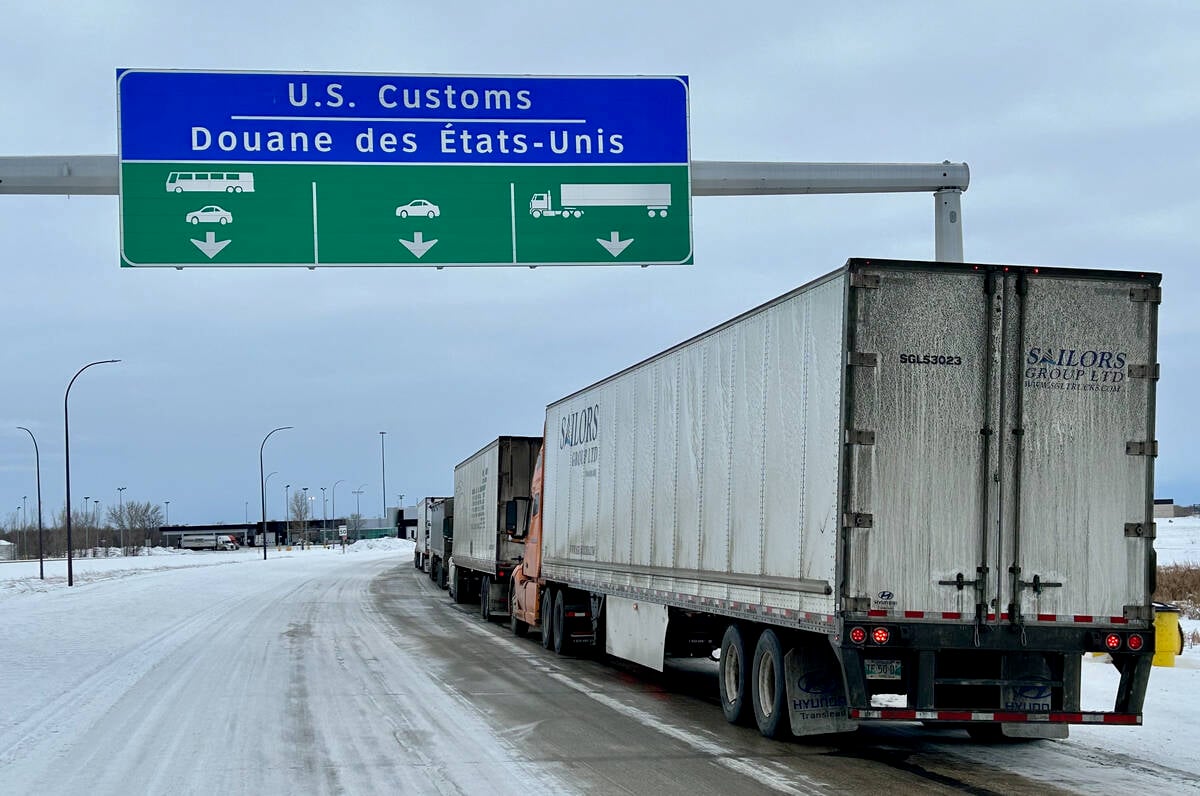The Conservative government has won enthusiastic reviews from many farm groups for its promotion of its trade agenda.
Market access is part of the Growing Forward 2 agreement, and the Conservatives created the market access secretariat within Agriculture Canada.
It is not an exaggeration to argue that this government really has substituted trade policy for agriculture policy in many ways.
Yet it still was breathtaking last week to hear a senior Agriculture Canada official enumerate the trade talks that Canada is involved in or wants to be involved in.
Read Also

U.S. bill could keep out Canadian truckers
The Protecting America’s Roads Act, which was tabled in the U.S. House of Representatives at the beginning of October, would “rid the country of illegal immigrant commercial truck drivers and ineligible foreign nationals.”
Irritating and sometimes amazing as it may be to farmers who see their personal livelihood dependent on trade and new markets, agricultural trade is a contentious issue in this country.
Critics, including the official opposition New Democratic Party, have at times cast a skeptical eye at the real benefit of agricultural export deals, arguing that Canada’s trade balance in agricultural products often decreases after free trade deals are implemented.
Meanwhile, even as Canada increases exports, Canadians are increasingly eating imports. Last year, 50 percent of Canadian consumption came from imports, which is fodder for the local food movement and those who argue that imported food is less safe and why can’t we generally feed ourselves?
And in the discussion about trade and its importance in agriculture, much of the political oxygen tends to get sucked out of the room by the “is supply management on the table” political debate.
But don’t suggest to an agricultural exporter — livestock, hogs, grain, oilseeds, pulses, special crops — that an aggressive trade agenda is not a good thing.
So last week, when senior Agriculture Canada lead negotiator on re-gional agreements Denis Landreville appeared at a grain symposium in Ottawa, he brought a report on what’s happening. The most imminent, of course, is the possibility of a free trade deal with the European Union.
It won’t offer access breakthroughs for hormone-produced beef or genetically modified crops, but it holds the potential for at least an opportunity to compete for hundreds of millions of dollars worth of food sales in the world’s largest consumer market.
Of course, the EU wants increased dairy product access, so that raises the old export-import protection debate.
The other big one on the long-term horizon is the Trans-Pacific Partnership talks that Canada joins for the first time in New Zealand next week.
Immediate market access gains are not realistic, and Canada already has free trade or preferential access to the major markets in the TPP. Still, it will take a lot of negotiating resources.
However, Landreville rhymed off a handful of other negotiations Canada has engaged in or is trying to engage in with India, Japan, Morocco, Ukraine, South Korea and maybe even China.
These are markets that could be worth billions of dollars to agricultural exporters.
Yet Canada’s trade negotiating infrastructure is limited and proposed cuts to the department of foreign affairs and international trade budget will not help.
Agriculture groups, supporters of the agenda, have called on the government to show its commitment by increasing the negotiating budget in the midst of cuts.
They have a point. Agriculture Canada is promising to, but it needs a bigger government commitment than that.
















